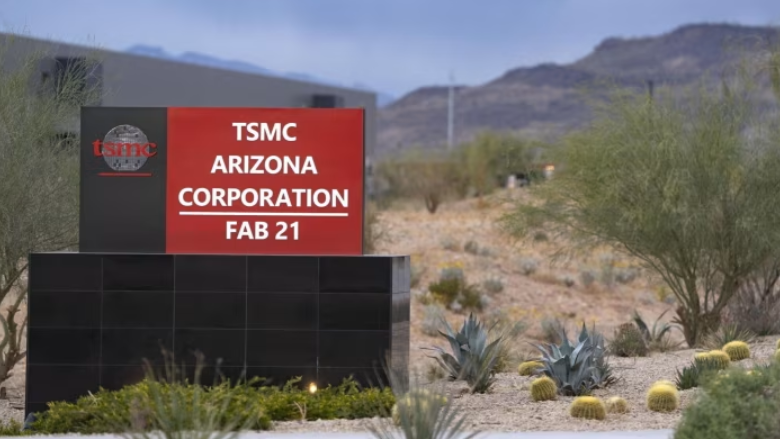Taiwan Semiconductor Manufacturing Co. (TSMC) has completed construction of its second chip fabrication plant (Fab 21 Phase 2) in Arizona, which will host its first 3nm production line in the United States. According to sources in the supply chain, equipment move-in is expected to begin as early as September 2025, with mass production slated for 2027—marking a significant acceleration in TSMC's U.S. expansion timeline.
The expedited progress reflects growing demand from TSMC's global customers for locally manufactured advanced chips, particularly for artificial intelligence applications. Although the U.S. facility will still lag behind Taiwan by roughly two years in process technology, the company's ability to bring 3nm production to U.S. soil is viewed as a major milestone in diversifying its manufacturing base.
Fab 21 Phase 2's early completion also benefits TSMC's construction and engineering partners such as Catcher Technology and Foxsemicon, who have gained valuable experience from working on the first Arizona fab (4nm production already underway) and are expected to see stronger profitability from continued engagement.
TSMC's 3nm fab is part of its broader $65 billion investment plan in the U.S., which includes three wafer fabs, two advanced packaging facilities, and a research center. In March 2025, the company announced an additional $100 billion investment to expand these initiatives further. While Fab 21 Phase 1 (4nm) is already in production, and Fab 21 Phase 3 is expected to produce 2nm or more advanced nodes by 2029–2030, most of the U.S. campus will not reach full-scale operations before the end of this decade.

Despite rapid progress on wafer production, advanced packaging remains a bottleneck. Currently, chips manufactured at TSMC's Arizona fabs—including 4nm and 3nm—must be shipped back to Taiwan for advanced packaging, such as CoWoS. TSMC has announced plans to build two packaging plants in the U.S., with the first, focused on SoIC (System on Integrated Chips) technology, expected to break ground in late 2025. However, full operational capacity will depend on factors such as workforce availability and regulatory approvals.
To reflect rising U.S. construction costs and continued AI demand, TSMC is also planning to increase wafer prices in 2026. Advanced node pricing is expected to rise 3–5% globally, while wafers produced in the U.S. may see price hikes of more than 10%.
Back in Taiwan, TSMC is simultaneously pushing forward with major expansions. Construction is underway on nine new fabs and 11 production lines, including those for 2nm nodes and high-demand advanced packaging capacity. For example, the company's Kaohsiung Fab 22 Phase 2 is scheduled for equipment installation in Q3 2025, with a third fab at the site to be completed in early 2026.
Together, these developments signal TSMC's dual-track strategy: maintaining leading-edge production in Taiwan while building geopolitical and logistical resilience through a growing U.S. manufacturing footprint.
+86 191 9627 2716
+86 181 7379 0595
8:30 a.m. to 5:30 p.m., Monday to Friday
